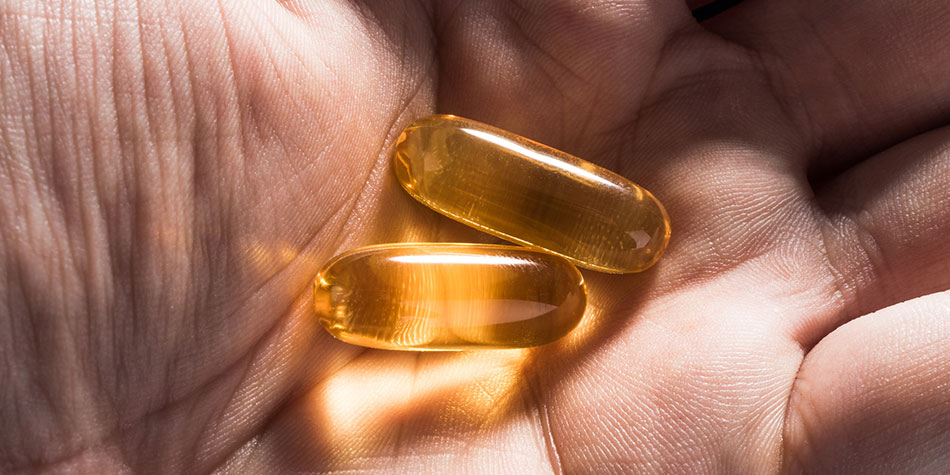
The COVID-19 pandemic has disproportionately affected many people with underlying conditions and risk factors such as respiratory and heart disease, obesity, and diabetes to name a few. But what about Vitamin D? Vitamin D is sometimes discussed, but often overlooked in terms of how important of a role it plays in our health.
Elsevier Nutrition Journal explains Vitamin D as not a vitamin in the traditional sense, but rather a group of fat-soluble compounds that are responsible for the intestinal absorption of calcium, phosphate, and magnesium.
“I like to think of Vitamin D as a super-vitamin as it has many positive effects,” said Dr. Alex Akhondi, FACP, Sunrise Health Graduate Medical Education Internal Medicine Associate Program Director and Internal Medicine provider at MountainView Medical Associates. “Vitamin D is best known for its ability to help with bone health, and goes hand-in-hand with calcium which helps strengthen bones.”
Vitamin D plays a major role in bone health as it maintains calcium levels, helps prevent involuntary muscle contractions, reduces inflammation, assists in the regulation of cell growth and metabolism of blood sugar, and works with the immune system to help fight off illness.
The Recommended Dietary Allowance (RDA) for Vitamin D, according to the National Institutes of Health, in adults 19-70 years old is 15 mcg or 600 IU per day.
“Unlike Vitamins B and C, in which excess is disposed naturally through urine, Vitamin D’s fat-soluble compounds may become toxic if taken more than needed.” said Dr. Akhondi. “Vitamin D can be found in various forms that aren’t necessarily supplements, such as a well-balanced diet and time in the sun.”
Vitamin D can either be consumed in the diet, in the form of supplements, or converted in the body via sun exposure. In most people, more than 80% of Vitamin D is formed in the skin after exposure to sunlight. A deficiency can happen as a result of consuming too little dietary intake of Vitamin D or not getting enough sunlight exposure. This is important because low levels can increase the likelihood of developing acute or chronic ailments such as infectious diseases, dental and periodontal diseases, autoimmune diseases, diabetes, heart diseases, and cancer, to name a few.
One study found that Vitamin D deficiency has been shown to potentially increase the risk of severe respiratory infections and was specifically linked with susceptibility to COVID-19. Another prospective study found that a high dose of Vitamin D supplementation reduced the need for intensive care stays in patients infected with COVID-19. More recently, a large population cross-sectional study found that patients with Vitamin D deficiency were 4.6 times more likely to test positive for COVID-19 compared to patients with no deficiency. The same study found that patients with this deficiency were 5 times more likely to be infected with the novel coronavirus, compared to non-deficient patients. The researchers concluded that there is a strong association between Vitamin D deficiency and an increased risk for COVID-19.
Part of this may be due to the role that Vitamin D plays in immune function as it has been shown to trigger the production of antimicrobial proteins that can inhibit the rate at which viruses replicate. It has also proven to be a potent anti-inflammatory, specifically in the lining of the lungs. If that weren’t enough, Vitamin D also helps in promoting the gene responsible for the expression of ACE2, which is down-regulated by severe acute respiratory syndrome, SARS-coV-2, also known as coronavirus.
It is no wonder that Vitamin D has proved to be essential to our health, now more than ever. Some good dietary sources can be found in fatty fish such as tuna, mackerel, trout, salmon, and fish liver oil. Smaller amounts can also be consumed in beef liver, egg yolks, cheese, mushrooms, fortified milk and dairy products, as well as fortified plant-based milks. Having at least 15 to 20 minutes of sunlight exposure is also a great way to supplement. The next time you’re out, maybe consider soaking up some sun for the sake of prevention and good health.
“Vitamin D and many other essential vitamins can be found in a nutritious, well-balanced diet,” said Dr. Akhondi. “Your doctor can help you determine if Vitamin D or multivitamin supplements are necessary, as too much Vitamin D can be harmful.”
Should there be any questions or concerns regarding Vitamin D supplements, please discuss with your doctor. If you’re in search of a doctor, please call (702)962-5021.
References:
NIH - Vitamin D (https://ods.od.nih.gov/factsheets/VitaminD-HealthProfessional/)
NIH - Increased risk for COVID-19 in patients with vitamin D deficiency (https://www.ncbi.nlm.nih.gov/pmc/articles/PMC7716744/)
$webqFacilityNumber
Need a Physician?